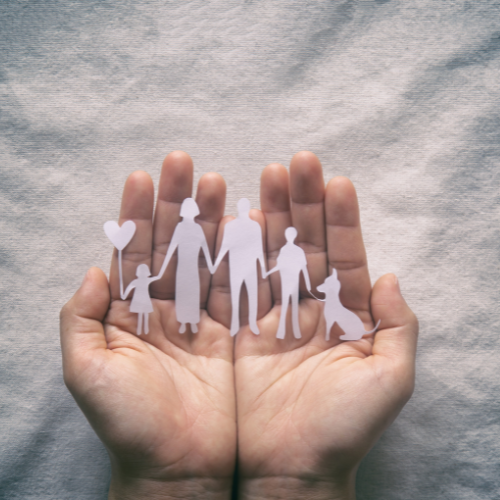Surviving domestic abuse is a monumental feat of strength and courage. Once you have taken the crucial step to leave an abusive relationship, the journey to rebuilding your life begins. This path may seem daunting, but with the right guidance, support, and determination, you can create a safe, fulfilling, and empowering future. This article provides a comprehensive guide to help survivors of domestic abuse navigate their recovery and rebuild their lives.
Understanding the Impact of Domestic Abuse
Domestic abuse affects every aspect of a survivor’s life, including physical health, mental well-being, and financial stability. Understanding the multifaceted impact of abuse is essential for addressing these issues and moving forward.
Physical Health
Abuse can leave lasting physical scars, including injuries that may require medical attention and ongoing care. It’s crucial to seek medical help and create a plan for maintaining your health.
Mental Health
The psychological effects of domestic abuse can be profound, including anxiety, depression, PTSD, and low self-esteem. Acknowledging these effects and seeking professional help is a vital step in the healing process.
Financial Stability
Abusers often control their victims’ finances, leaving them without resources when they escape. Rebuilding financial independence is a significant challenge that requires careful planning and support.
Steps to Rebuild Your Life
Rebuilding your life after domestic abuse involves several critical steps. Each step focuses on different aspects of recovery and empowerment.
Prioritize Safety
Ensuring your safety and the safety of your loved ones is the first and most important step.
Develop a Safety Plan
– Identify safe places you can go in an emergency, such as a friend’s house, a family member’s home, or a shelter.
– Create an emergency bag with essential items like clothing, identification, money, and important documents.
– Establish a code word with trusted individuals to signal when you need help.
Legal Protection
– Obtain a restraining order or protection order against your abuser.
– Seek legal advice to understand your rights and the available options for protection.
Seek Emotional and Psychological Support
Healing emotionally and psychologically is a crucial part of the recovery process.
Professional Counselling
– Engage in therapy with a counselor specializing in trauma and domestic abuse.
– Consider different types of therapy, such as cognitive-behavioural therapy (CBT), EMDR, or group therapy.
Support Groups
– Join support groups for survivors of domestic abuse to connect with others who have had similar experiences.
– Share your story and listen to others to gain perspective and encouragement.
Rebuild Financial Independence
Gaining financial stability is essential for long-term recovery and empowerment.
Financial Planning
– Create a budget to manage your expenses and prioritize savings.
– Open a bank account in your name to secure your finances.
Employment and Education
– Seek employment opportunities to regain financial independence.
– Consider further education or training to improve your job prospects.
Establish a Support Network
Building a strong support network can provide emotional, practical, and social support.
Friends and Family
– Reconnect with trusted friends and family members who can offer support and companionship.
– Communicate openly about your needs and accept help when offered.
Community Resources
– Utilize local resources such as shelters, counselling services, and legal aid.
– Engage with community organizations that support survivors of domestic abuse.
Focus on Self-Care and Well-Being
Taking care of your physical and emotional well-being is vital for recovery.
Physical Health
– Regularly visit healthcare providers to address any ongoing physical health issues.
– Incorporate exercise, a balanced diet, and adequate sleep into your routine.
Emotional Well-Being
– Practice mindfulness, meditation, and relaxation techniques to manage stress and anxiety.
– Engage in activities that bring you joy and fulfillment, such as hobbies, sports, or creative pursuits.
Rebuild Self-Esteem and Confidence
Domestic abuse often erodes self-esteem and confidence. Rebuilding these aspects of yourself is essential for moving forward.
Positive Affirmations
– Use positive affirmations to reinforce your worth and abilities.
– Surround yourself with positive influences and avoid negative self-talk.
Set Achievable Goals
– Set small, achievable goals to regain a sense of control and accomplishment.
– Celebrate your successes, no matter how small they may seem.
Create a Vision for Your Future
Visualizing and planning for your future can provide motivation and direction.
Long-Term Goals
– Identify long-term goals for your personal and professional life.
– Create a roadmap for achieving these goals, including steps and timelines.
Embrace New Opportunities
– Be open to new experiences and opportunities that come your way.
– Pursue passions and interests that you may have neglected during your abusive relationship.
The Role of Community and Society
Creating a supportive environment for survivors of domestic abuse involves the collective effort of communities and society at large.
Community Involvement
Awareness and Education
Policy Advocacy
Rebuilding your life after domestic abuse is a challenging but achievable journey. By prioritizing safety, seeking emotional and financial support, and focusing on self-care and empowerment, survivors can create a fulfilling and independent future. Community and societal support play a crucial role in this process, ensuring that survivors have the resources and encouragement they need. Remember, the journey to recovery is unique for each individual, and taking one step at a time will lead you towards a brighter, safer, and more empowered future.
At Healing Through Love, we are dedicated to providing resources, support, and education to help survivors of domestic abuse rebuild their lives. Your strength and resilience are the foundation for a new beginning. Reach out, seek support, and take the steps towards a future filled with hope and empowerment.


